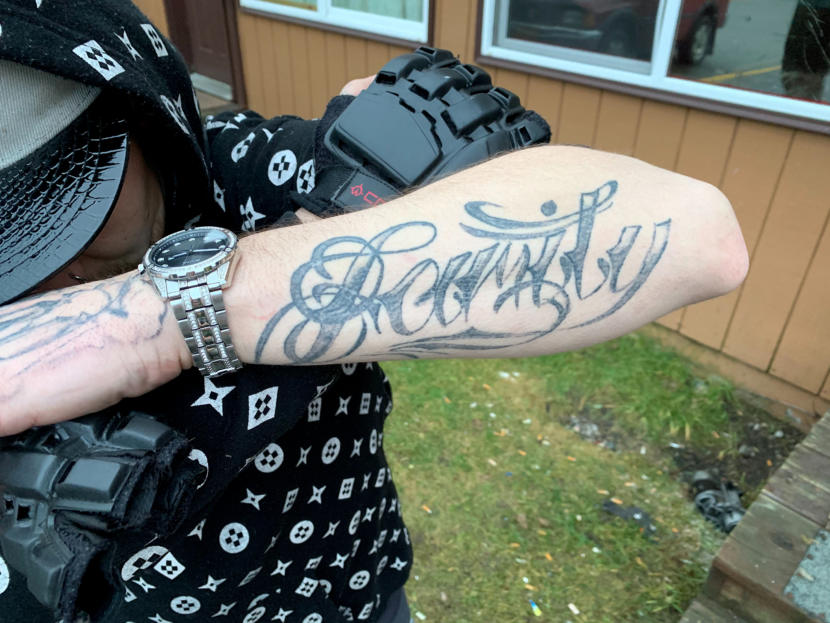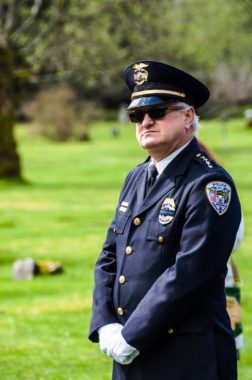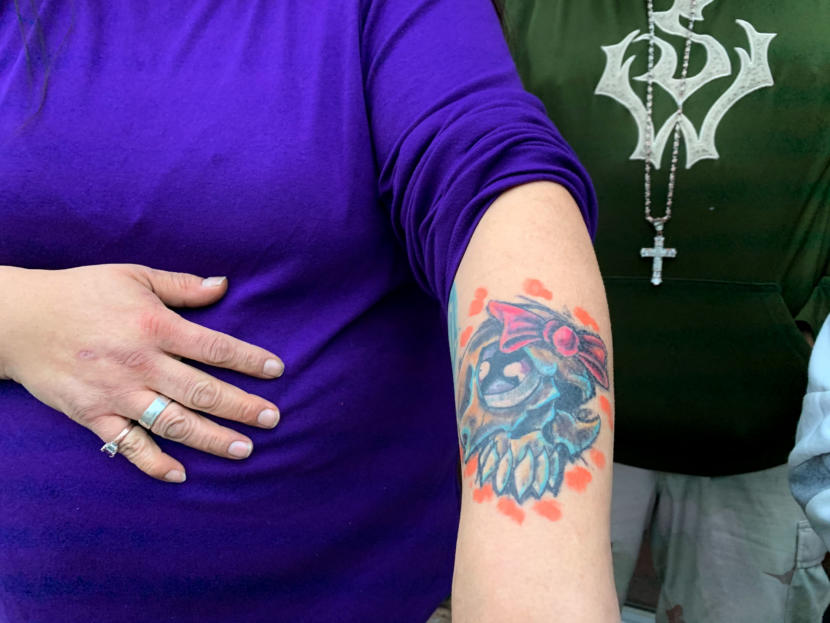
On Dec. 28, a Juneau police officer shot and killed a man while responding to a 911 call.
The shooting exposed deep divisions in the community. Some are questioning why the man who was killed provoked police, and others are asking whether it was necessary to use lethal force.
The last time a police officer in Juneau shot and killed someone was in 2007. According to police records, there was a 911 call about a man who was holding a knife to a woman’s throat. When the Juneau police officer got there, the man had a sword. He screamed at the officer and threatened him with it, and the officer eventually shot him in the chest.
Greg Browning was Juneau’s police chief at the time.

“All officer-involved shootings become controversial,” he said. “You know, people think, ‘Well why didn’t the officer shoot the sword out of his hand?'”
In this particular case though, there was an audio recording that, Browning said, made it pretty clear that the officer had done everything he could to avoid using deadly force.
“So I kind of took the unconventional step of just bringing that tape down to the Juneau Empire and letting them have it,” Browning said. “So they could put it out to the public, so they could make their own decision on whether the officer was justified in what he did or not.”
This time around, the Juneau Police Department hasn’t released any footage or audio from the Dec. 28 shooting — they denied a records request seeking access to it.
They also haven’t released the 911 call that prompted Officer James Esbenshade to go to Cinema Drive, where he later shot Juneau resident Kelly Michael Stephens.
But Browning said the community reaction — pushback from some and unwavering support from others — is the same.
“It doesn’t seem to matter how clear-cut the case is, somebody will be skeptical. Which I guess is almost normal,” Browning said. “People have the right to have their opinion about things. But there’s a certain segment of the community that’s a little bit anti-police, and they come out of the woodwork when this happens.”
In 2007, JPD did its own investigation of the shooting and exonerated the officer who did it. This time, they’ve flown in Alaska State Troopers to look into the circumstances around the shooting.
They’ll also be doing the autopsy.
Juneau Police Department spokesperson Erann Kalwara wrote in an email on Dec. 31 that police should get preliminary autopsy results back in about a week. However, the full report — including whether Stephens had any drugs or alcohol in his system when he died — could take up to eight weeks.
There are no plans to drug test the officer who killed him. Kalwara said that would typically happen only if there was a suspicion that the officer was under the influence — which is not the case in this situation.
Browning said the aftermath of a shooting like this one can be hard for an officer — especially because they’re required to go on leave. He said it can be an emotional thing to handle on their own.
“You just have to make sure the officer has good peer support, that he has any professional help he might need,” Browning said.

As for the man who Esbenshade shot, Kelly Stephens, friends said he was a man who was struggling with balance.
Stephens, 34, was a prolific tattoo artist. He was also a heroin addict who has been in and out of jail over the last few years.
Mario Singh owns Taku Tattoo where Stephens worked on-and-off since 2016. He has some good memories. He said Stephens would crank up the music while he was tattooing — it didn’t matter what kind, just that it was loud.
Singh said Stephens loved art and had an insatiable appetite for tattooing. When he was on his game, he was inspiring to work with.
“He’d tattoo till like 2 a.m.,” Singh said. “It was like, ‘OK man, let’s tone it down to regular hours.’ That’s when he was really motivated and just trying to focus all his energy on that — the guy would work 12 hours on a tattoo.”
But Singh said they got into a frustrating cycle of Stephens letting him down.
“I would try to hold him accountable, and different things would always just kind of fall through,” Singh said. “I ended up having to let him go.”
Stephens moved down south. Then he came back and was clean for a little while. So Singh gave him another chance. And then another.
“Everybody’s worth a second, third, fourth chance,” Singh said. “It just always seems like Kelly’s heart was in the right place. He was just — I think he dealt with a lot of mental anguish, a lot of trauma in his life.”
Singh said he didn’t put a lot of what he knows about Stephens out on social media. In part because, in a town this small, people will pick it up and run with it — use it to further whatever argument they’re going to make.
There are a lot of people in the community talking about this shooting, weighing in on who was right and who was wrong. Singh said there are some things that he wishes everyone would keep in mind.
“He was kind of — not notorious, but I mean, he had gotten into a certain amount of trouble. He was known as a drug addict. Stealing people’s gasoline out of cars. I think there was some footage of him on people’s home cameras and stuff like that. And you know, it’s easy to demonize someone and say, ‘Well you know, he’s just a crackhead.’ But, you know, it’s just a person who’s just dealing with — it wasn’t just a lust for drugs, it was an effort to combat some kind of trauma.”
The last time Singh saw Stephens alive, it was at the shop a few months ago. Stephens had just gotten out of a halfway house and was on an ankle monitor. He was clean, and he wanted to get back to work.
“I was like, ‘Well, me and you used up all our chances. We’re not going to start that back again.’ I still considered him a friend,” Singh said. “I was like, ‘Maybe down the road, who knows?’ He kind of agreed with me, kind of chuckled about it.”
If Singh had known that it was going to be the last time he was going to see Stephens, he said he may have shared a poem called “The Laughing Heart” by Charles Bukowski.
He heard it recently and said it reminds him of Stephens. He thinks it’s because Stephens always tried to come back when life knocked him down. When he knocked himself down.
